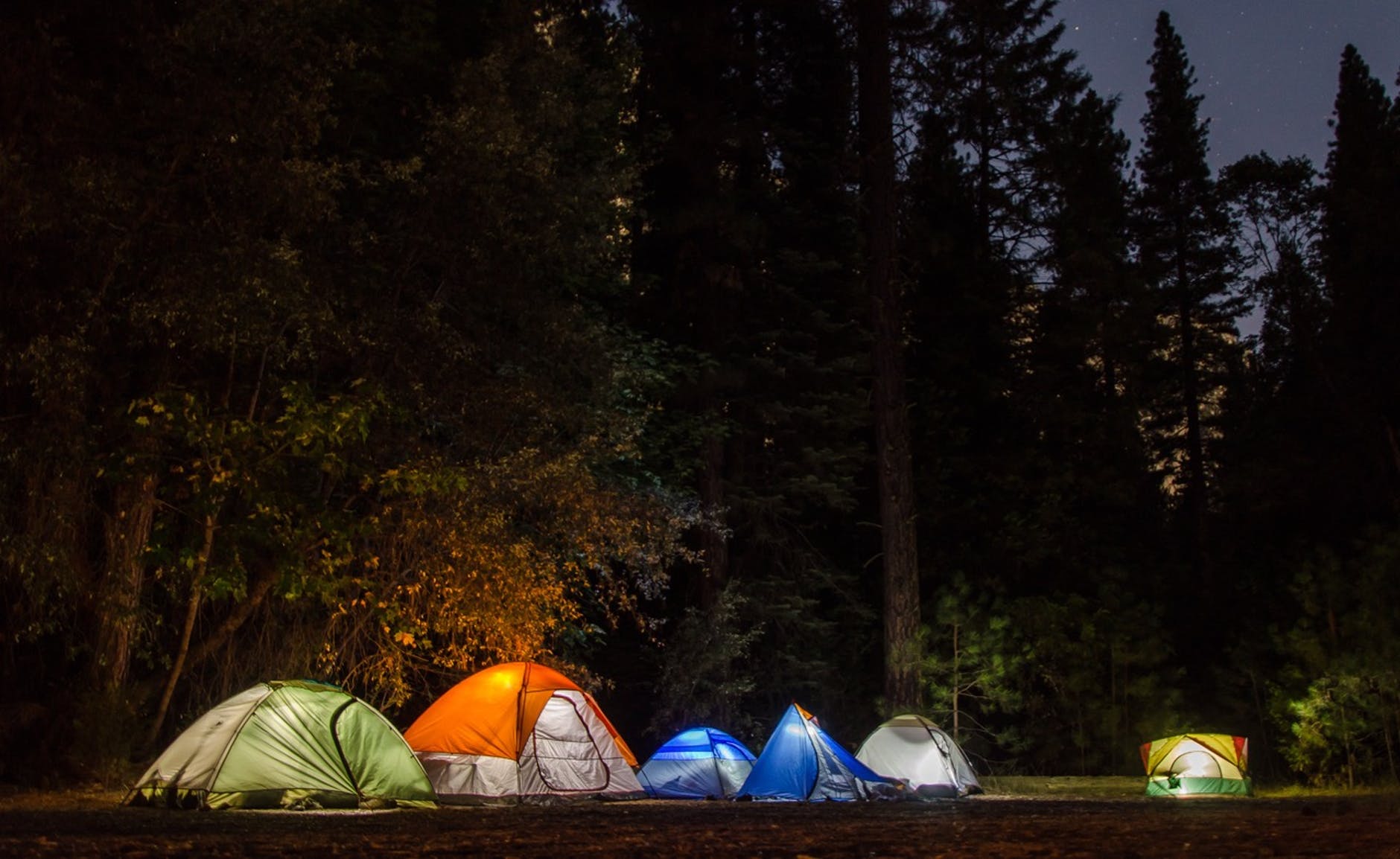
Photo: The Generator Judge
During the summer across the United States, many people love to spend more time enjoying outdoor activities. Hiking, camping, and beach parties are just a few of the activities most people love to be a part of during the warmer parts of the year. While these activities provide excitement and an opportunity to connect with friends, loved ones, and nature, they could pose some health risks. Therefore, each time you go out, make an effort to safely enjoy yourself. Here are ten protective measures to consider while in the great outdoors.
- Make camp before nightfall
Camping experts always advise people to set up their tents and settle down at the campsite before nightfall. When it gets dark outdoors, your vision is limited, even with the help of artificial light like headlamps, flashlights, and lanterns. This means that accidents and errors are bound to happen. While the sun is still up, you should take the time to set up your tents and equipment to avoid any issues. It will give you the chance to set up your 10×10 canopy tent, which will require your utmost attention to set up and also prevent avoidable injuries and mis-happenings.
- Make the camp clean
Regardless of where your camping location is, cleanliness is paramount and must be on top of your priority list. Unclean campsites usually attract rodents, bugs, bears, and other wildlife, looking for food- which you would not be pleased to deal with. Do not leave your food at ground level. Instead, hang it up in a tree above your sleeping spot. At least, a distance of 200 feet safe and away from your firelight camp.
On the other hand, you can use food sacks that are bear and rodent-proof to pack your snacks and leftover meals. Talking about food, avoid eating or cooking within your tent as the aroma will attract unwanted pests to your sleeping bags and inside your tent. In addition to that, avoid wearing clothes you wore while you cooked or ate to bed. The smell of food tends to linger on your skin, and that could be dangerous while outdoors.
- Be wary of carbon monoxide poisoning
Appliances such as heaters, grills, lanterns, and even gas stoves are known to leak carbon monoxide. If you never knew, this is a very poisonous gas and is responsible for many accidental deaths across the country. For that reason, avoid using them in your tent or enclosed shelter at the campsite. Also, be mindful when storing them away, as their proximity to flammable materials may cause a fire outbreak.
- Learn to manage purposeful fires
It is a no-brainer at the campsite to know how to make, maintain and extinguish fires you use either for cooking or other. Remember that your campsite is in an ecosystem where plants and wildlife exist. It would help if you remembered that the weather is relatively dry during the summer, and leaves tend to lose moisture. An uncontrolled fire could start through the foliage with these elements and cause damage than you ever imagined. As a precaution, avoid setting up your fire under low trees; never leave it unattended; be deliberate in clearing debris away from the fire, and arrange stones and rocks around the flames only if you failed to use a fire pit. When you are done, pour a generous amount of water over it and ensure every piece is quenched.
- Keep your skin protected from the sun
It will be a smart thing to apply a generous amount of sunscreen on exposed parts of your body while camping. You should pay particular attention to your neck, ears, and face, as these areas receive the most complications when sunburn occurs. Your best bet will be SPF 100+, as those are known as most effective against burns. It should not be a one-time application only; remember to reapply it several times in the day. Skin cancer is one of the most popular types of cancer in America. Usually caused by exposure to UV rays from the Sun, protect yourself as often as possible.
- Be mindful of mosquitoes and ticks
Over the years, the Center for Disease Control (CDC) reminds campers of the need to protect themselves against mosquito bites. Campers are also reminded to be wary of picking up ticks on clothing or the body. These insects are responsible for some diseases which could be fatal in humans. Therefore, if you are going out to camp, ensure to pack bottles of effective insect repellents. If the heat is not too bad, opt to wear long sleeves and pants of light fabric material. If the heat is extreme, wear short sleeves but with a generous application of insect repellents.
- Stay hydrated at all times while camping
Drinking a fair amount of water during hot weather is beneficial to your skin and entire body. One liter of water consumed every two hours is even better to keep dizzy spells due to extreme weather conditions at bay. Therefore, before embarking to your campsite, pack lots of water bottles or a hydration pack. In some places, you may have to filter your water before drinking it.
- Learn to use a map and compass
Your cell phone is not enough to help you find your bearings in the middle of the wild. What if you lose service reception or your battery runs down and cannot be charged immediately? It is better to learn to use a real paper map and a traditional compass device. Brush up on your compass and map reading skills weeks before going out to camp.
- Avoid feeding wildlife while camping
Truthfully being outdoors and one with nature can often get you carried away. You would very much love to caress or feed the wildlife you may come across, especially the cubs and calves. However, you should remember that wherever you find a young or baby animal, its mother is usually close by and could spring up an attack on you. It is generally recommended to check online to read the information on the types of wildlife you are bound to encounter where you will be camping. Read more articles on wildlife safety to be better equipped when faced with a situation like that.
- Prioritize Personal Safety with the Right Equipment
While immersing yourself in the great outdoors is a rejuvenating experience, it’s crucial to not let your guard down when it comes to personal safety. An essential item to consider carrying is a pepper spray gun. Understanding the different pepper spray gun types is vital in choosing one that suits your needs, whether you’re navigating through crowded events or secluded trails. These devices come in various forms, from compact models for easy carrying to those with enhanced range capabilities, ensuring you can maintain a safe distance from potential threats. Always test and familiarize yourself with the operation of your pepper spray gun before your outdoor adventures.
- Pack a first aid kit and a good hiking gear
Camping and hiking go together, and that is why you should be prepared to hike if you camp. You would not be spending all your hours inside your tent. The purpose of camping is to enjoy nature in every safe way possible. It is the more reason you should pack adequate hiking gear before setting off. For example, high-quality boots are designed to prevent blisters on the feet. Did you know they provide some support for your ankles as well? Always be on the safer side by not opting for regular gym boots when there is a better option for the terrain. You should have an excellent first aid kit packed in your stuff. That should include various plasters, sterile gauze, alcohol rubs, ointment, a few rolls of bandage. If you know how to work splinters, carry that along as well. You never know when these items will be required.
Camping is an exciting exercise for anybody who loves the outdoors. In this pandemic, however, you may want to put a hold on any camping activity. The world is yet to get out of the gloom. However, when you have the opportunity to take a camping trip, adhere to the safety protocols, and be safe.
























